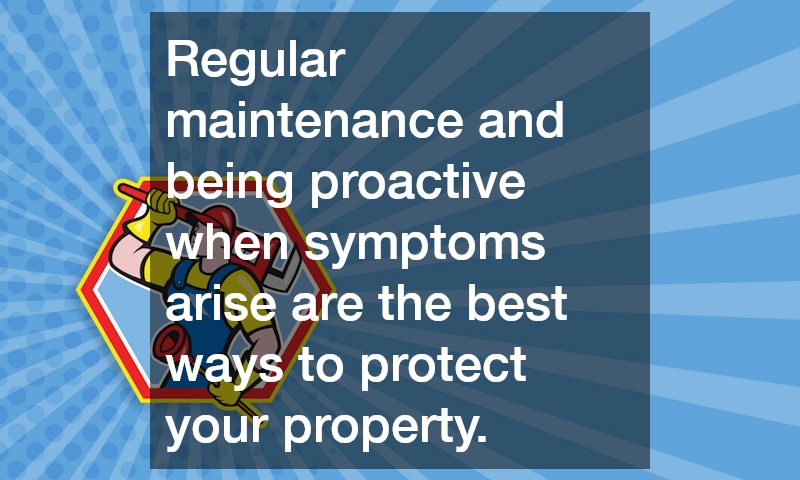Dealing with plumbing issues is often an inevitable part of homeownership or property management. While some minor problems can be temporarily managed with DIY solutions, there are situations where calling a professional plumber is not just advisable but essential. Knowing when to make that call can save time, money and stress, preventing minor annoyances from becoming major disasters.
In this article, we explore the key signs that indicate it’s time to pick up the phone and call a plumber.
Persistent Low Water Pressure
One of the earliest signs that your plumbing system may be in trouble is persistently low water pressure. This could affect a single tap or the entire house. While sometimes it’s due to a clogged aerator, consistent low pressure might point to something more serious like a hidden leak, a burst pipe or sediment buildup in your plumbing system. These issues are often beyond the scope of a basic repair kit and require the expertise of a licensed plumber to properly diagnose and fix the problem without causing further damage.
Unexplained Water Bills & Damp Areas
Have you noticed a spike in your water bills despite no significant change in usage? Or perhaps you’ve discovered damp patches on your walls, ceilings or floors? These could be signs of a hidden leak within your plumbing system. Small leaks can go unnoticed for weeks or even months, slowly causing structural damage and encouraging mould growth. Water damage not only jeopardises the integrity of your home but can also pose health risks. Calling a plumber at the first sign of unexplained moisture or rising utility bills can help locate the source of the leak and prevent costly repairs down the track.
Clogged Drains That Don’t Respond to DIY Efforts
Blocked drains are one of the most common plumbing complaints. Often, a plunger or a drain cleaner can provide a quick fix. However, if your sink, toilet or shower remains clogged despite repeated attempts to clear it, the problem could be deeper in the pipes or even in the main sewer line. Tree roots, grease buildup or foreign objects may be obstructing flow, which can’t be solved with over-the-counter solutions. A professional plumber has the tools and experience to identify the obstruction and remove it safely without damaging your plumbing system.
Burst Pipes or Sudden Water Discharge
A burst pipe is a plumbing emergency that requires immediate attention. Whether caused by ageing infrastructure, freezing temperatures or excessive water pressure, a burst pipe can release litres of water in a very short time, leading to flooding, water damage and even electrical hazards. If you notice a sudden drop in water pressure, hear the sound of running water within your walls or find water pooling in unusual places, shut off your main water supply and call a plumber immediately. Swift action can significantly reduce the extent of the damage and the cost of repairs.
No Hot Water or Inconsistent Temperatures
While cold showers may be bearable in the height of summer, a lack of hot water is inconvenient and often indicative of a problem with your hot water system. Whether it’s an electric or gas heater, issues such as strange noises, fluctuating temperatures or complete failure to produce hot water should not be ignored. Hot water systems are complex and can be dangerous to tamper with without the proper training. A licensed plumber can inspect the system, identify the fault—whether it’s a faulty thermostat, broken heating element or sediment buildup—and perform the necessary repairs or recommend a replacement if required.
Odd Noises or Smells in Your Pipes
Gurgling sounds from your drains, knocking pipes or unpleasant odours can signal underlying plumbing issues. These could be caused by air trapped in the pipes, venting problems or the buildup of organic material. Left unchecked, such issues can escalate into blocked sewer lines or burst pipes. If you notice these signs, it’s best not to ignore them or hope they go away on their own. A plumber can perform a thorough inspection, often using specialised cameras, to get to the root of the problem and ensure your plumbing system runs smoothly again.
Ageing Infrastructure & Renovation Plans
Even if everything appears to be working fine, it’s worth consulting a plumber if your home is more than a few decades old. Ageing pipes, especially those made from galvanised steel or lead, can corrode and become a health risk. Planning a renovation? Engaging a plumber early in the design process ensures new installations are compliant with Australian standards and seamlessly integrated into your existing system. This prevents future complications and ensures your investment is protected.
The Importance of Acting Early
Waiting too long to address plumbing problems can turn what would have been a minor repair into a costly renovation. Water damage, structural issues and mould infestation can result from neglected plumbing. Regular maintenance and being proactive when symptoms arise are the best ways to protect your property.
Although some plumbing issues might seem minor at first glance, they can be indicative of more serious underlying problems. From leaks and blockages to malfunctioning water heaters and aged infrastructure, there are clear signs that require the attention of a qualified professional. When in doubt, it’s always safer to err on the side of caution and call a plumber. Their expertise ensures not only the immediate issue is resolved but that your plumbing system remains efficient, safe and compliant with current standards.
.

